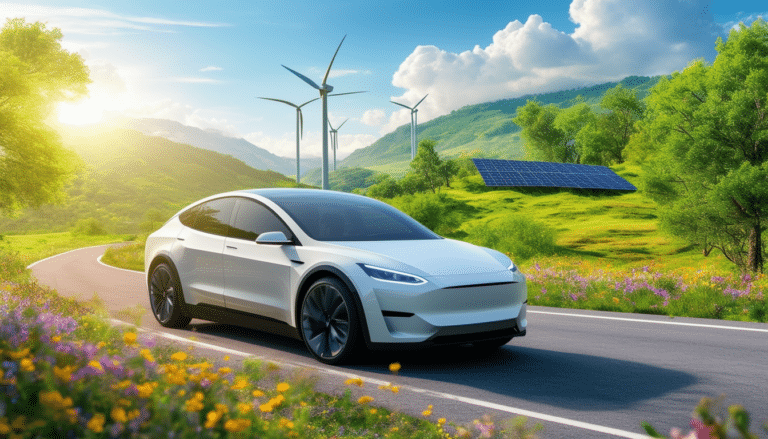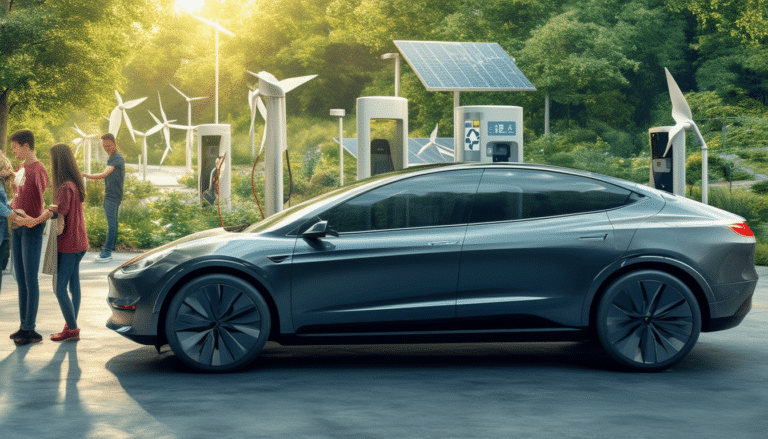La importancia de la eficiencia energética en el cambio climático
Energy efficiency has become a fundamental pillar in the fight against climate change. As the demand for energy continues to grow, optimizing its use not only helps reduce consumption but is also essential to minimize the emission of greenhouse gases. Implementing energy efficiency practices can improve quality of life, providing healthier and more comfortable environments while progressing toward a more sustainable future. With the aim of limiting the increase in global temperature and fulfilling international commitments, energy efficiency is presented as a key tool in the transition towards responsible development models.
Energy efficiency has become a vital component in the fight against climate change. As the demand for energy grows, so do the emissions of greenhouse gases, which have a devastating impact on the environment. This article will analyze how energy efficiency not only contributes to sustainability but also improves quality of life and promotes a healthier future for all.
Reduction of greenhouse gas emissions
By improving energy efficiency, it is possible to significantly reduce energy demand, resulting in a decrease in pollutant emissions. This effect is crucial in mitigating climate change, as emissions of gases such as CO2 are responsible for global warming. International commitments, such as the Paris Agreement, underline the need to adopt effective measures to limit the increase in global temperature, and therefore, energy efficiency plays a fundamental role in this context.
Better quality of life
A more comfortable and healthy environment is possible thanks to energy efficiency. The implementation of more efficient technologies in homes and industries not only reduces energy consumption but also contributes to a healthier indoor environment. For example, optimized heating and cooling systems create more pleasant living spaces, reducing diseases associated with air pollution and extreme temperatures.
Economic savings
Energy efficiency not only benefits the environment but also contributes to the economic savings of families and businesses. By using efficient appliances and adopting energy-saving practices, it is possible to significantly reduce the energy bill. This translates into a greater capacity for investment in other areas, generating a positive impact on both local and global economies.
Promotion of clean and sustainable technologies
The improvement in energy efficiency paves the way for the development of clean and renewable technologies. The transition towards sustainable energy sources, such as solar and wind, is strengthened by the demand for systems that maximize the use of these energies. By fostering a culture of sustainability, a dual benefit is achieved: a reduction in dependence on fossil fuels and a contribution to creating a cleaner future.
Education and awareness about energy consumption
It is essential to establish education and awareness about the importance of energy efficiency in the fight against climate change. Communities and individuals must be informed about how their daily actions impact the environment. From the responsible use of resources to the choice of appliances and vehicles, every decision counts and can make a difference globally.
For greater savings and more efficient driving, articles such as How to be a more efficient driver and comparisons of vehicle efficiency in U.S. vehicles can be consulted.
Government initiatives and public policies
Governments play a crucial role in promoting energy efficiency through public policies. Initiatives that promote the use of green technologies, tax incentives for the acquisition of efficient products, and regulations that govern energy consumption are fundamental steps to achieve an effective reduction of emissions. Collaboration among sectors, as detailed in successful cases and studies, is essential to reach the sustainable development goals set by the United Nations.
Innovation and technological development
Technological innovation is a key driver in improving energy efficiency. With the advancement of artificial intelligence and new technologies, solutions are being developed that allow optimizing energy use in various industries. This not only reduces costs but also leads to a more responsible management of resources, as mentioned in relevant articles about the impact of artificial intelligence on fuel consumption here.
The future of energy efficiency
As efforts to mitigate climate change progress, energy efficiency will continue to be a priority focus. The pursuit of a more sustainable energy model, combined with social and political commitment, will be vital to ensure a healthy planet for future generations. The active participation of all is crucial to achieve these goals, emphasizing the need for a collective approach to reducing our carbon footprint.
Finally, it is interesting to observe how the vehicles of the future, such as those that will be launched in 2025 and promise high efficiency, are designed to meet the sustainability standards demanded by the current market. More details about these vehicles can be found at this link.
Energy efficiency has become a fundamental element in the fight against climate change. As the world faces the challenge of reducing greenhouse gas emissions, adopting measures that optimize the use of energy is not only sensible but also critical for the well-being of the planet and future generations.
Implementing energy efficiency practices across various sectors, from industry to home, directly contributes to decreasing energy demands. By reducing energy consumption, the need for non-renewable resources is limited, and pollutant emissions are reduced. Thus, not only is global warming mitigated, but a cleaner and healthier environment is favored, benefiting both the environment and people’s health.
Moreover, the adoption of more efficient technologies is not only favorable for the environment but also offers economic benefits. The reduction in energy consumption translates into significant savings on utility bills and can even stimulate economic growth through job creation in renewable energy and sustainability sectors.
On the other hand, the global commitment to sustainability and emission reductions has been reinforced by international agreements such as the Paris Agreement. These agreements highlight the importance of integrating energy efficiency into public policies and the sustainable development strategies of each nation, ensuring a coordinated and joint approach to the challenge of climate change.





